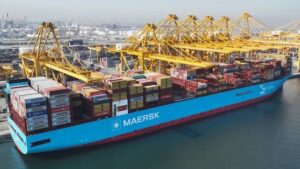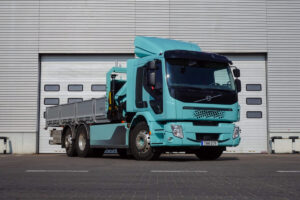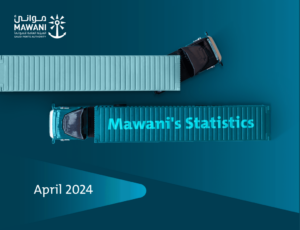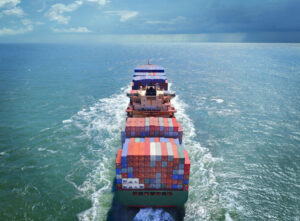The ongoing electrification of the storage area at Hamburger Hafen und Logistik Aktiengesellschaft (HHLA)’s Container Terminal Burchardkai (CTB) continues with the start of operations of four new modern storage blocks.
The switch will reportedly drive forward the decarbonisation of workflows as well as the reduction of emissions at the Port of Hamburg.
The transition to the new technology was subsidised by the environmental authority with special funds from the European Regional Development Fund as part of the REACT-EU initiative, for a total of €10 million ($10.87 million).
The four new storage blocks, which were gradually put into operation over the first half of 2023, complement the electric container storage at CTB by an additional 8,500 TEU.
All in all, the automated container yard at CTB has a capacity of almost 39,000 TEU spread across a total of 19 storage blocks.
The automated storage crane systems that store and prepare containers for onward transport run on green electricity.
The switch also creates the conditions for the conversion of horizontal transport to fully automated container transport (Automated Guided Vehicles), which are battery-operated and thus also climate-neutral.
READ: HHLA and CSPL ink minority shareholding in CTT
The CTB has been further developed on an ongoing basis during operations since 2006. The storage blocks with state-of-the-art storage crane systems have been fully automated at the terminal since 2010.
With the commissioning of the four additional blocks, the terminal’s efficient use of space has increased by more than 30 per cent.
Because the port is so close to the city, it is very important to use the space efficiently and to keep the emissions generated at the Port of Hamburg as low as possible. This includes noise and light emissions.
Three additional storage blocks are currently being built at CTB, which will expand storage capacity to a total of 22 blocks starting in 2024.
READ: DP World accelerates Brazilian electrification projects
HHLA Executive Board member, Jens Hansen, said: “By using new technologies, we want to fully electrify the container handling process at CTB, our largest terminal in Hamburg, while significantly improving our energy efficiency.
“Using electricity from renewable sources will allow us to continue decarbonising our workflows at the port. The switch to environmentally friendly storage crane systems will bring us a big step closer to this goal.”
This is the latest step HHLA has taken in its pursuit to a more eco-friendly and sustainable future.
Earlier this month, HHLA TK Estonia, a subsidiary of HHLA, built the biggest solar park in the Estonian Muuga Harbour.
Additionally, in January 2023, HHLA commissioned Linde Engineering to build a hydrogen filling station within the scope of its Clean Port & Logistics innovation cluster.









